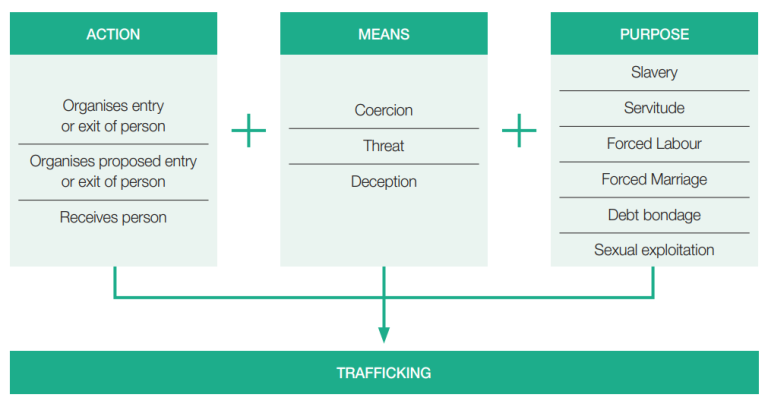What human trafficking looks like
Human trafficking can look different for different people. Someone might be tricked into being trafficked by false promises of education, a good job, citizenship or residency. Someone else might be subjected to threats or violence against them or their family. Others could experience an abuse of power, where someone uses their position to take advantage of them.
Someone who has been trafficked may be made to work long hours in a factory or a farm, restaurant or a brothel, on a building site or in a home for little or no wages. Others may experience sexual exploitation or are forced into a marriage they do not want or do not fully understand.
Often, someone experiencing human trafficking may feel unable to escape or leave because they are worried about what the offender might do to them or their families or what other people might think.
Someone who is trafficked may:
- be physically moved within, out of or into Australia
- be Australian, a dual citizen or a foreign citizen
- be made to do illegal things
- be under someone else’s control, even if it is not obvious
- have no choice or control over what they do at their destination.
They might not:
- be physically restrained or abused
- identify as someone who has been trafficked, or immediately ask for help.
Human trafficking is also when someone is coerced, threatened or tricked into:
- moving so someone can remove an organ from them without consent
- leaving Australia, even if they are not exploited. This is called ‘exit trafficking’.
Read more about the warning signs of modern slavery.
Human trafficking is a serious crime
In Australia, it is against the law to move someone for exploitation.
Under Australia’s Criminal Code, the penalty for human trafficking includes jail for up to 20 years. For child trafficking, the penalty is jail for up to 25 years.
